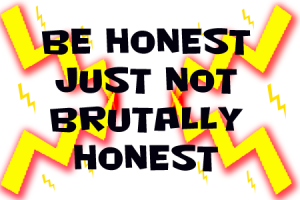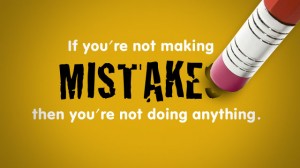I grew up believing that “challenging” authority (elders, teachers, bosses) was considered rude and disrespectful. By default, those in authority should be respected. I went through half my life, even early on in my career following orders and keeping my opinions to myself because of this belief. I was not supposed to “make waves” as their are consequences. I think I have come a long way from that person who was too polite to voice his opinions. It took me some painful experiences to realize I had to change my way of thinking. Whether these self beliefs from personal experiences or imposed by society, I think there’s value in re-examining our own self limiting beliefs for a more fulfilling life.
In his book Awaken the Giant Within by Anthony Robbins, he shared some stories of self limiting beliefs. One example are adult elephants that are physically capable of breaking away from a chain links tied to posts but they don’t do so. This is because as young elephants, they were tied to the same chain links and when they tried to break away from them, they were not physically strong enough and so growing up, they were conditioned to not even try. How many opportunities in our lifetimes have we failed to take advantage of because of our own self limiting beliefs?
Roger Bannister broke the four-minute mile barrier on May 6, 1954. For years prior to that date, the general belief was that it was impossible to accomplish that feat. Thousands of runners have run faster than Bannister since he broke that barrier. As I read somewhere, “everything is impossible, until it is possible.”
As a student affairs professional, I wonder what self limiting beliefs we have as a profession that maybe preventing us from advancing, looking at our profession in a different light? In my role as a technologist intent on promoting the use of mobile web and social media, one of the biggest push back against using these technologies are the fear of potential FERPA/HIPAA violations, security breaches, disclosure of confidential information. As someone who is in the position of responsibility to enforce policies and guard student records as well as other confidential information, I am very aware of the consequences, including penalties that could result from these incidents. I remember having the same concerns expressed to me in mid 1990’s when I started building web sites or when email became the primary form of communication. I also remember a colleague who refused to acknowledge the possibility of using the web to conduct financial aid transactions because he felt the web will never be as robust as desktop applications.
New technological advances bring higher expectations from our customers for our institutions to provide services the way they are accustomed to getting in their personal lives via consumer technologies. How long, as a profession, can we continue to cling on to our self limiting beliefs of “that’s how we have always done it” or our skepticism against new ways of providing services to our students?
At a personal level, what are some beliefs you may have that are self limiting? How about student affairs?


